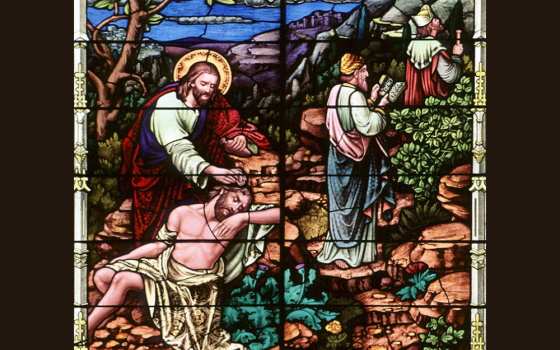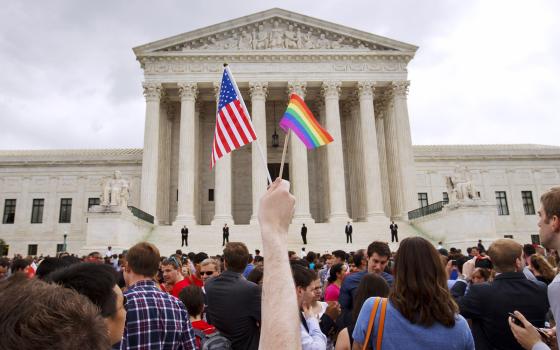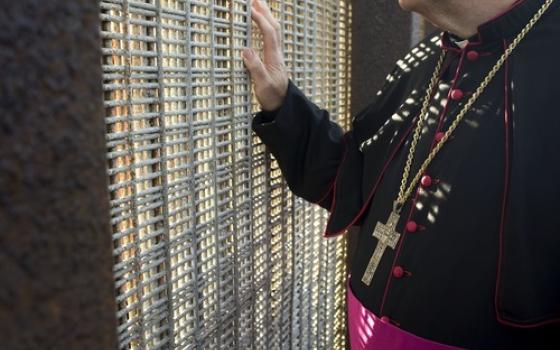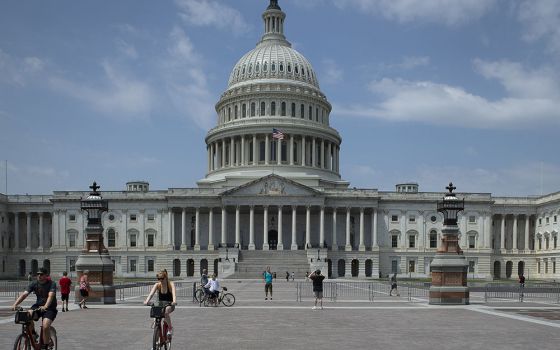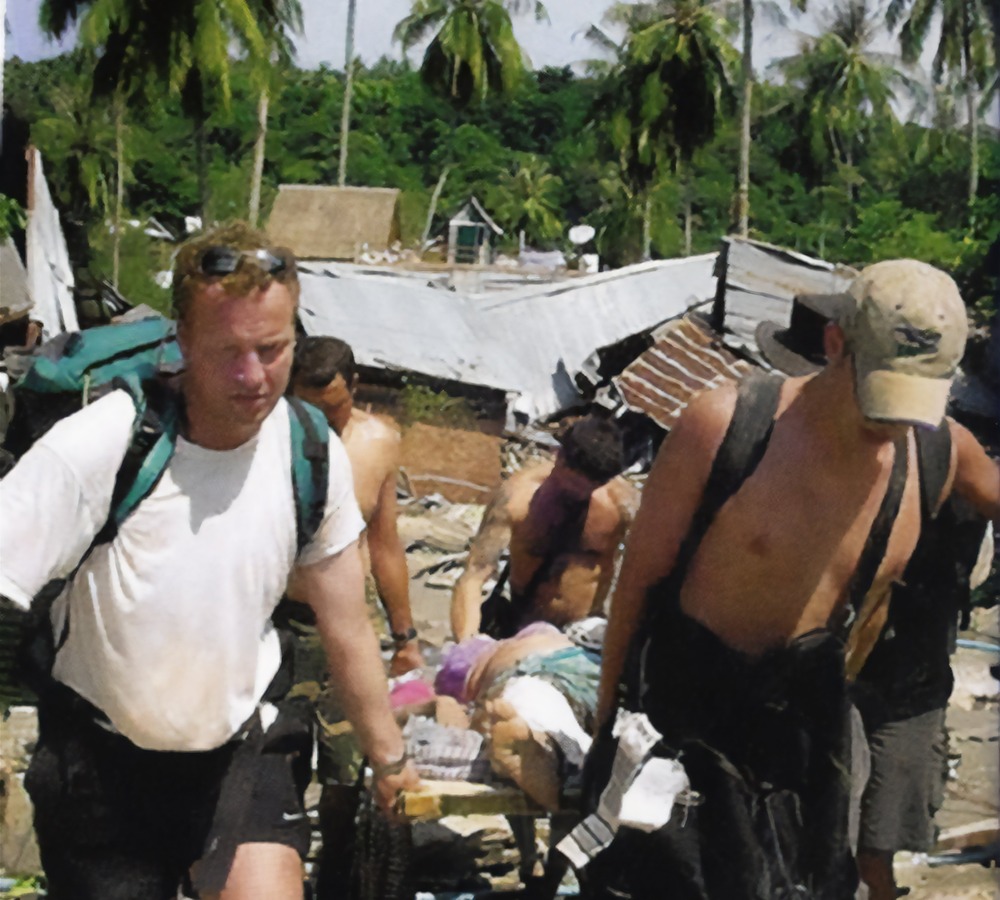
Deacon Ned Berghausen, foreground right, is pictured helping carry a tsunami survivor to safety after the 2004 Indian Ocean tsunami struck Thailand. He was 24 years old at the time and The deacon, ordained in 2020, was 24 years old at the time and serving in the Peace Corps, but was vacationing on Koh Phi Phi Island in Thailand when the tsunami struck. (OSV News/Pim Boonyarattana, The Record)
On the morning of Dec. 26, 2004, Deacon Ned Berghausen watched from a three-story building on Koh Phi Phi Island in Thailand as a wall of water surged to shore.
The Indian Ocean tsunami took more than 220,000 lives. In an interview ahead of the 20th anniversary of the disaster, Berghausen reflected on how surviving the disaster changed him.
"It was profoundly transformative," said Berghausen, who serves at St. Agnes Church in Louisville's Highlands neighborhood. "I credit being a committed Christian and a deacon" to that experience. He was ordained to the diaconate in August 2020.
Looking back, Berghausen said he realizes God was present even in that time of great suffering. He reflects often, he said, on the date of the tsunami — the feast of St. Stephen, who was the first martyr and one of the first deacons of the early church.
"The Christmas message is Emmanuel, God is with us. To follow Christmas with the feast of St. Stephen reminds us God is with us in dark times," he told The Record, Louisville's archdiocesan news outlet. "In one of the greatest natural disasters, God was there with us in the wreck and ruin. God hadn't left us there to suffer by ourselves."
Before the tsunami, Berghausen described himself as "agnostic," though he attended Mass and belonged to St. William Church. At 24 years old, the future deacon was trying to find his way in the world, he said. He'd joined the Peace Corps, which sent him to Bangladesh, a country in South Asia, where he taught English to students in the sixth through 12th grade. Berghausen now teaches theology at Assumption High School.
Ahead of Christmas in 2004, he traveled to Koh Phi Phi for a rest; he was enjoying the nightlife and meeting new friends, he said.
Then a major 9-plus magnitude earthquake struck off the coast of nearby Indonesia. As its effects radiated through the region, water surged ashore in multiple countries, engulfing the streets and sweeping away buildings, boats and people alike.
In the hours that followed, Berghausen and other tourists joined local people — many injured and separated from their loved ones — to help rescue those struggling to survive. They waded through murky thigh-high water to bring people to safety.
He later learned that many on the small island of Koh Phi Phi died in the tsunami.
"I am grateful to have seen the courage (of those who responded to help victims) and to see God's work in action," he said.
Advertisement
Berghausen said he was plagued by survivor's guilt and still struggles on the anniversary of the disaster. He doesn't believe God spared him over someone else — that he was somehow more worthy. Instead, he believes he was simply lucky. But he also believes "God can work through suffering and evil," he noted.
"I don't think God causes bad things to happen," he said. "I can see God working in me, cracking open my heart."
Surviving the tsunami "opened me to God's grace," in a way that intellectual questioning couldn't, he said.
Even before the tsunami, Berghausen said he struggled with the suffering, caused by poverty and injustice, he witnessed in Bangladesh.
"I was experiencing that daily, a feeling of my own powerlessness to change the suffering surrounding me," he said. "One moment led me to prayer. I remember walking the streets of Bangladesh and a prayer came to me. 'Walk with me, Lord.' It felt like it came from outside of me but there was a profound sense of consolation and peace. It was OK to feel powerless. It wasn't mine to fix."
Both the experience of surviving a natural disaster and experiencing the suffering of others put him on the path he's on, he said.
"I came slowly out of those experiences with a desire to serve people and help alleviate suffering. It slowly led into the diaconate, patterned after Christ the servant, who puts himself in the lowest position," he said.

